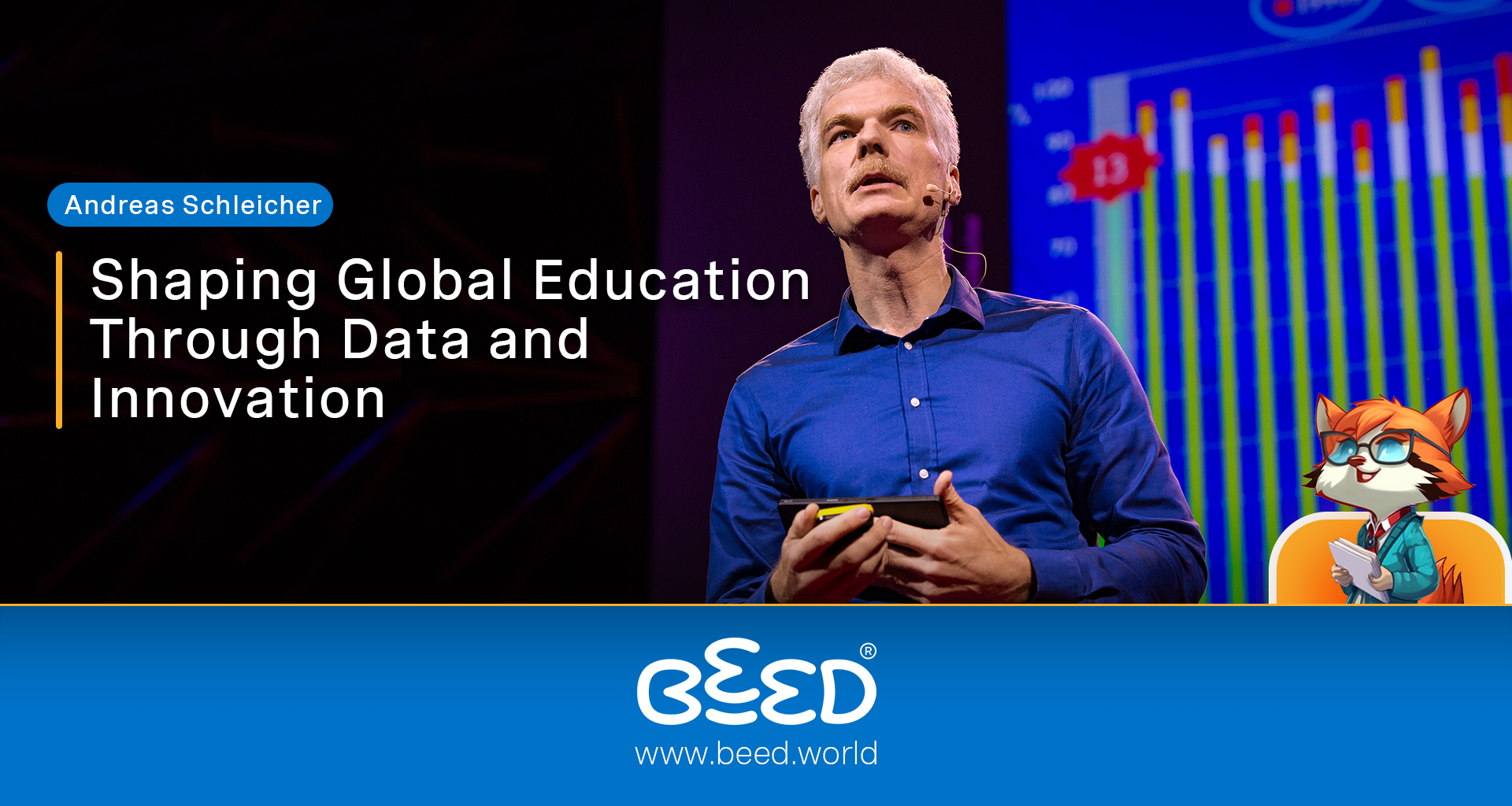Andreas Schleicher: Shaping Global Education Through Data and Innovation

In the ever-evolving landscape of global education, few figures have been as influential as Andreas Schleicher. Schleicher, as the Director for Education and Skills and Special Advisor on Education Policy to the Secretary-General at the Organisation for Economic Co-operation and Development (OECD), has been at the forefront of educational research and policy development. His work, particularly with the Programme for International Student Assessment (PISA), has revolutionised how we understand and improve educational systems worldwide.
Early life and career
Andreas Schleicher was born in Germany in 1964. His academic journey began with studies in physics in Hamburg, followed by a move to Australia, where he studied mathematics at Deakin University. His studies piqued Schleicher's interest in education, prompting him to pursue further education at the University of Erlangen-Nuremberg in Germany, where he earned a degree in physics. His diverse academic background provided a strong foundation for his future endeavours in educational assessment and policy.
The Birth of PISA
In 1994, Schleicher joined the OECD, where he would eventually become instrumental in developing the PISA program. Launched in 2000, PISA assesses 15-year-old students' reading, mathematics, and science literacy every three years, providing a comprehensive and comparable data set on educational outcomes across countries. Under Schleicher’s leadership, PISA has grown to include over 90 countries, becoming a critical tool for policymakers worldwide.
Impact on Global Education
Schleicher’s work with PISA has had a profound impact on global education. By providing objective data on student performance, PISA has enabled countries to benchmark their educational systems against others, identify strengths and weaknesses, and implement evidence-based reforms. Schleicher’s insights have highlighted the importance of educational equity, teacher quality, and the need for innovative teaching methods.
Key Contributions and Principles
- Data-Driven Insights: Schleicher is a strong advocate for using data to inform educational policy. The PISA results have revealed significant insights, such as the correlation between socio-economic status and educational outcomes, and the importance of early childhood education.
- Focus on Equity: One of Schleicher’s key principles is the need for educational systems to provide equal opportunities for all students, regardless of their background. His work has emphasised the importance of addressing disparities to ensure that every child has the chance to succeed.
- Teacher Quality: Schleicher has often highlighted the crucial role of teachers in student success. PISA data has shown that countries with high-performing educational systems invest in teacher quality through professional development, support, and adequate compensation.
- Innovation in Education: Schleicher advocates for innovative teaching practices that adapt to the changing needs of the 21st century. He stresses the importance of critical thinking, problem-solving, and digital literacy in preparing students for a rapidly evolving job market.
Challenges and Criticisms
Despite his many contributions, Schleicher’s work has not been without criticism. Some educators and researchers argue that PISA’s focus on standardised testing can lead to an overemphasis on quantifiable outcomes at the expense of holistic education. Others point out that cultural differences can affect PISA results, making direct comparisons between countries challenging.
Schleicher has addressed these concerns by continuously refining PISA’s methodologies and expanding the scope of assessments to include factors such as student well-being and socio-emotional skills. His commitment to a nuanced understanding of educational outcomes underscores his dedication to improving education globally.
Continuing the legacy
As education systems worldwide grapple with challenges such as inequality, technological change, and the need for lifelong learning, Andreas Schleicher’s work remains more relevant than ever. His emphasis on evidence-based policy, equity, and innovation continues to inspire educators, policymakers, and researchers.
In recent years, Schleicher has expanded his focus to include vocational education and training, adult learning, and the impact of artificial intelligence on education. His forward-thinking approach ensures that educational systems can adapt to future challenges and opportunities.
Conclusion
Andreas Schleicher’s contributions to global education are both profound and far-reaching. Through his work with the OECD and PISA, he has transformed our understanding of educational outcomes and provided invaluable tools for policymakers worldwide. Schleicher’s vision of an equitable, innovative, and data-driven education system continues to shape the future of education, ensuring that every student has the opportunity to thrive in an increasingly complex world.